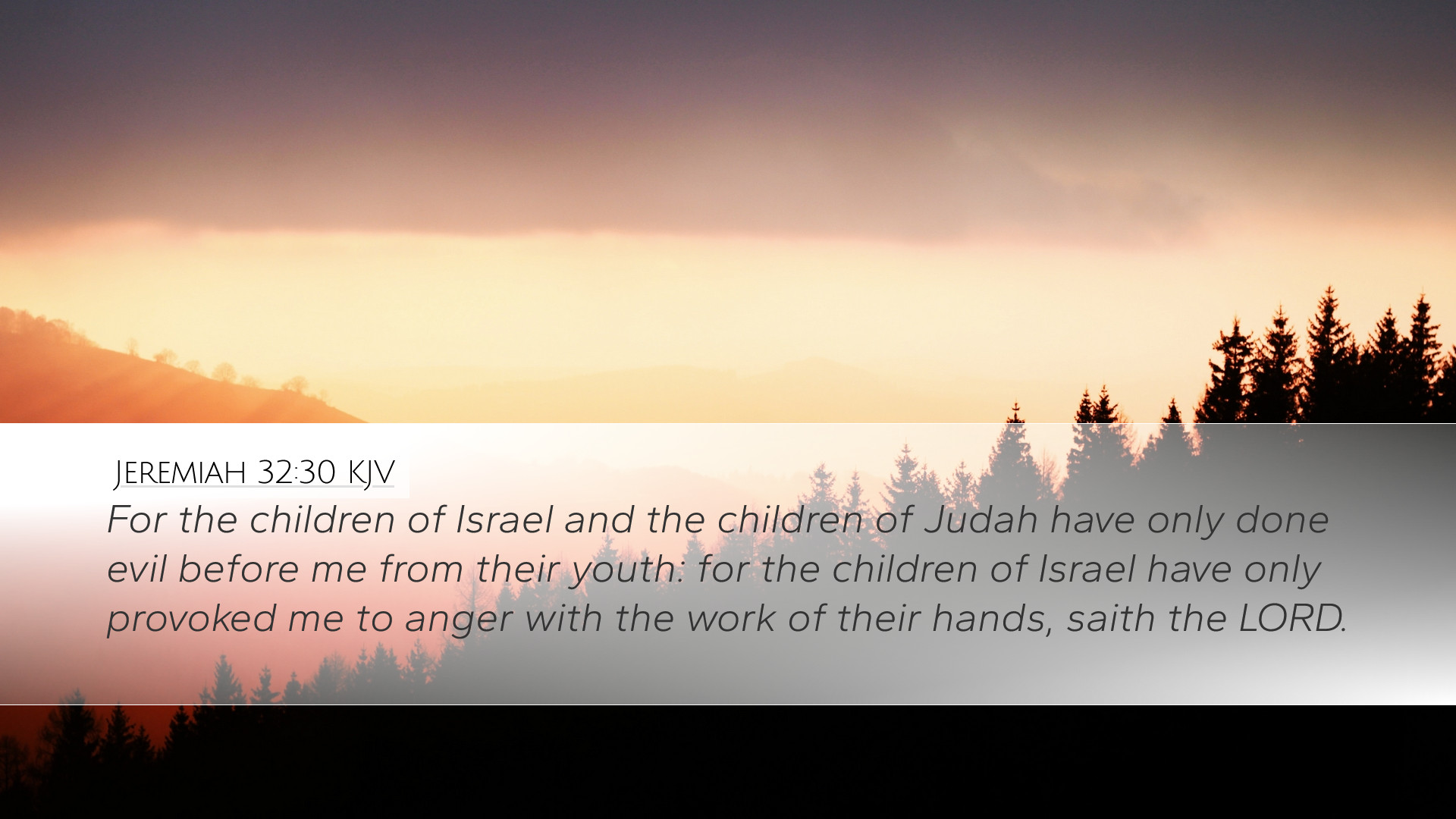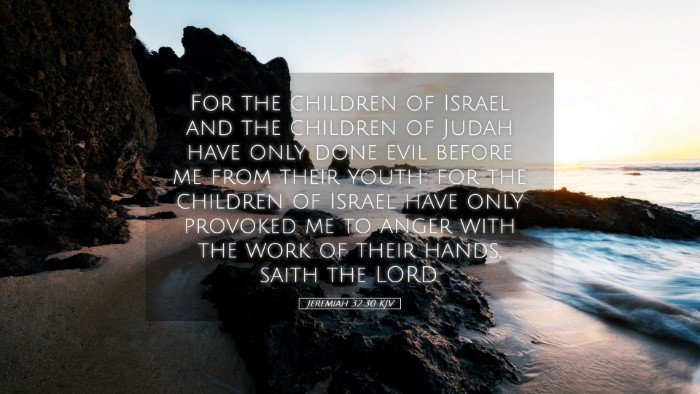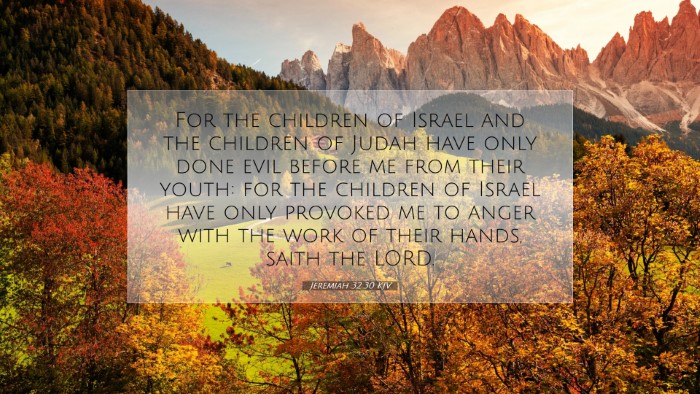Bible Commentary on Jeremiah 32:30
Bible Verse: "For the children of Israel and the children of Judah have only done evil before me from their youth: for the children of Israel are only provoked to anger by the work of their hands, saith the LORD."
Introduction
The prophetic literature of Jeremiah provides a profound reflection on the moral and spiritual condition of Israel during a time of impending judgment. In Jeremiah 32:30, the prophet articulates a critical observation regarding the persistent wickedness of the people. This commentary aims to synthesize insights from notable public domain commentaries to provide a comprehensive understanding of this verse.
Contextual Analysis
The book of Jeremiah is set against the backdrop of a nation in crisis. The verses surrounding Jeremiah 32:30 emphasize the gravity of Israel's sin and their continual rebellion against Yahweh. Scholars such as Matthew Henry highlight that this verse serves as a summation of Israel's historical disobedience. The acknowledgment of "evil" is not merely an indictment but a lamentation of their spiritual state.
The Nature of Sin
Albert Barnes notes that the reference to the children of Israel doing evil "from their youth" signifies a long-standing pattern of iniquity. This observation underlines a theological principle: man’s propensity towards sin is innate. Throughout scripture, we see a correlation between generational behavior and divine expectation, illustrating that the actions of one generation often influence the next.
Provocation of Anger
The phrase "provoked to anger" is particularly significant. Adam Clarke explains that this phrase denotes a clear breach of covenantal relationship between God and His people. The "work of their hands" serves as an allusion to idolatry and the worship of false gods, as Israel engaged in practices that dishonored their Creator. Clarke emphasizes that God views such actions as direct affronts to His glory, warranting divine anger.
Theological Reflections
This verse invites deeper theological reflection on the nature of God’s justice and mercy. The persistent rebellion of Israel raises questions about divine patience and the limits of grace. Matthew Henry suggests that while God is patient, His justice cannot overlook persistent sin indefinitely. Thus, Jeremiah 32:30 serves both as a warning and a call to repentance.
Implications for the Covenant Community
The implications of this text extend beyond ancient Israel to modern readers, particularly within the covenant community of the church. Each generation is tasked with the responsibility of fidelity to God's commandments. Albert Barnes urges contemporary believers to reflect on their own practices, cautioning against the complacency that often leads to spiritual decline. The historical failures of Israel can serve as a sobering reminder for current followers of Christ.
Repentance as a Response
Consideration of Israel's failings leads to an essential understanding: the call to repentance is paramount. Adam Clarke asserts that to comprehend the depth of one’s sin is to open the pathway to true repentance. In recognizing their actions as provocation against God, believers today must seek renewed commitment to holiness and collective confession of sin.
Conclusion
Jeremiah 32:30 is a poignant reminder of the consequences of unrepentant sin. It calls believers to a serious evaluation of their spiritual lives and communal practices. Engaging with the commentaries of Matthew Henry, Albert Barnes, and Adam Clarke provides valuable insights that encourage a deeper understanding of God's character and the importance of living in alignment with His will.
Further Reflections
- The Need for Vigilance: The spiritual history of Israel serves as a warning that vigilance is required to maintain covenantal faithfulness.
- The Call to Action: This verse compels pastors and theologians to boldly preach the need for repentance in their congregations.
- The Assurance of Grace: Despite the bleakness of judgment, believers are reminded that God continually calls His people back to Himself, illustrating the relentless nature of His grace.


